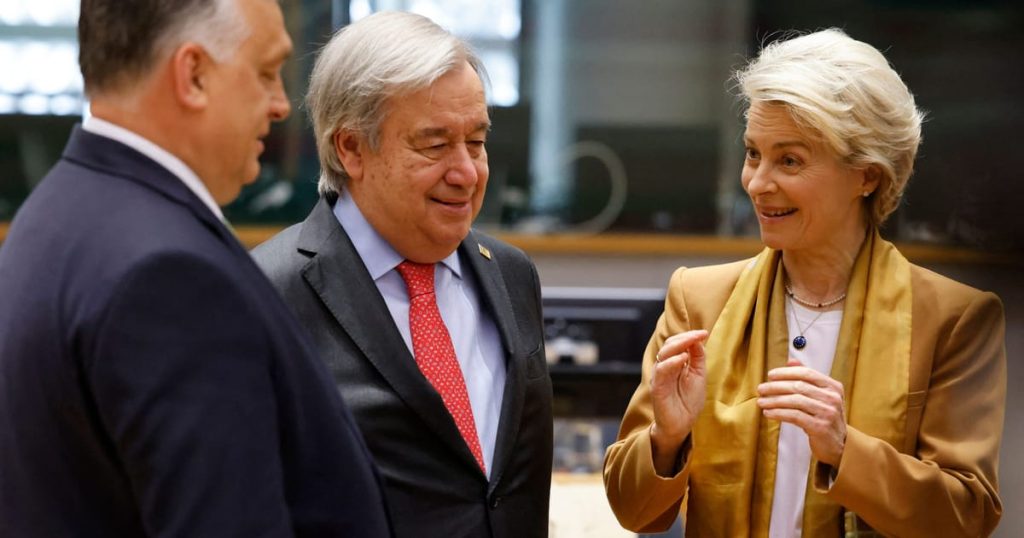In a recent statement, Hungarian Prime Minister Viktor Orbán accused European Commission President Ursula von der Leyen and European People’s Party leader Manfred Weber of conspiring to topple his government. Orbán expressed his frustration over their apparent open intention to undermine a democratically elected government in Hungary, suggesting that their actions diverge from genuine European priorities and instead focus on regime change. This claim indicates a heightened level of tension between Hungary’s right-wing government and significant political figures within the European Union, which adds another layer to the complex relationship between Hungary and EU institutions.
Orbán elaborated on his assertion by alleging that the primary political factions in the EU—the European Socialists and the European People’s Party (EPP)—have already plotted to install new leadership in Hungary. He specifically mentioned Klára Dobrev from the Socialists and Péter Magyar of the Tisza party, suggesting that these figures are being promoted as his potential replacements. This narrative paints a picture of an orchestrated effort by EU leaders to see a shift in Hungary’s political landscape, a notion that Orbán seems to convey as an affront to national sovereignty and democratic principles.
In a response that echoes Orbán’s rhetoric, Péter Magyar rejected the Prime Minister’s allegations about external manipulation and interference. He criticized Orbán’s comments, labeling them as falsehoods, insisting instead on the independence of the Tisza party from foreign influence, and he affirmed the party’s commitment to working alongside Hungarian citizens to bring change within Hungary. This exchange underscores the divided political climate in Hungary, where narratives around external versus internal influences weave through the discourse surrounding governance and national identity.
The political rivalry, particularly between Orbán and his former allies, illustrates the shifting dynamics within Hungarian politics. Magyar’s emergence as a significant opponent to Orbán, despite once holding a key position within Fidesz, highlights the fractures within Hungary’s right-wing political landscape. His public rejection of Orbán’s claims about external interference suggests a broader strategy to galvanize support against the sitting government based on a platform of national integrity and self-determination.
Moreover, this confrontation highlights a deeper discourse occurring at the EU level about the balance between respect for member state sovereignty and the responsibilities of the EU to uphold democratic values among its members. Orbán’s remarks tap into a populist narrative that portrays the EU as an interfering body attempting to override national governance, while EU leaders, represented by von der Leyen and Weber, argue for adherence to democratic norms and resistance to what they see as authoritarian tendencies in Hungary.
Dominated by themes of sovereignty, identity, and the nature of democratic governance, this political clash illustrates the complexities of the relationship between Hungary and the EU. As Orbán portrays the EU as trying to orchestrate a coup from within, the counterargument resonates with European leaders who contend that their actions are warranted to protect the democratic values enshrined in EU treaties. This ongoing tension suggests that Hungary will remain a focal point of debate on governance and democracy within the broader EU framework for the foreseeable future, highlighting the intricate dance between national interests and European ideals.














